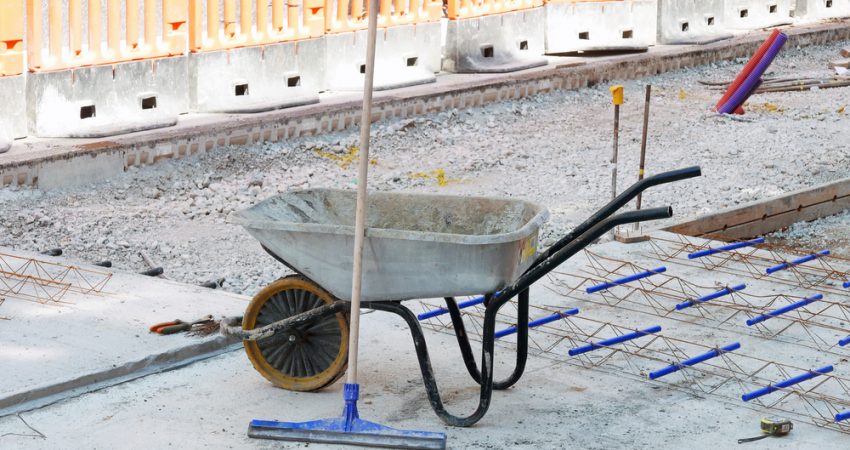UK construction companies recorded another drop in business activity during November. The pace of decline moderated to its slowest since July. However, new work continued to fall sharply amid reports that domestic political uncertainty had led to indecision among clients.
The headline seasonally adjusted IHS Markit/CIPS UK Construction Total Activity Index rose to 45.3 in November, from 44.2 in October, to signal the slowest drop in overall construction output for four months. Reduced business activity was attributed to a lack of new work to replace completed contracts. In some cases, survey respondents suggested that unusually wet weather in November had also weighed on output.
All three broad areas of construction work recorded a fall in output during November, with civil engineering the worst-performing category, followed by commercial building. Meanwhile, a much slower decline in housing activity helped to moderate the overall drop in UK construction output signalled by the survey in November.
The latest data pointed to another sharp reduction in new work received across the construction sector. Lower sales volumes have now been recorded for eight consecutive months, which is the longest phase of decline since 2012-13. Survey respondents commented on subdued client confidence and ongoing hesitancy to commit to new projects, largely in response to domestic political uncertainty.
Construction companies reported a sustained decline in their staffing numbers during November. A number of firms noted that softer demand had prompted cost-cutting efforts and led to the non-replacement of voluntary leavers.
Mirroring the trend for employment, latest data revealed a solid reduction in purchasing activity across the construction sector. Weaker demand for construction products and materials allowed suppliers to catch up on their workloads in November. As a result, vendor lead-times lengthened to the smallest extent since September 2010.
Subdued demand for raw materials led to fewer price rises by suppliers in November. Moreover, latest data indicated that overall input cost inflation remained among the lowest seen since early-2016.
Looking ahead, construction companies remain relatively cautious about their prospects for growth over the course of 2020. The degree of business optimism was little-changed since October and still much weaker than its long-run average. Reports from survey respondents suggested that this largely reflected concerns about the domestic economic outlook and worries that political uncertainty will continue to hold back client confidence.
Tim Moore, Economics Associate Director at IHS Markit, which compiles the survey:
“UK construction output fell again in November as Brexit uncertainty and the forthcoming General Election continued to send a chill breeze across the sector. The speed of the downturn in construction work eased a little since October, but the survey continues to signal a notable drop-off in business conditions compared with the first half of 2019.
“Greater hesitancy among clients led to a decline in overall new work for the eighth consecutive month during November. Construction companies reported a particularly sharp fall in demand for commercial projects amid a greater squeeze from domestic political uncertainty and delayed investment decisions.
“House building has been the most resilient category of construction output in 2019. However, it remains a concern that overall volumes of residential building work have dropped in each month since June, which is the longest phase of decline since the start of 2013.
“Greater spending on transportation and energy projects had been expected to help boost infrastructure work this year and next, but survey respondents indicated a sustained soft patch for overall civil engineering activity in November. Some construction companies reaffirmed their concern about the delivery of road and rail projects, with delays to contract awards acting as an additional headwind to growth projections for 2020.”
Duncan Brock, Group Director at the Chartered Institute of Procurement & Supply:
“Brexit uncertainty, an impending General Election and wet weather all combined to keep the construction sector firmly in its contraction hole last month with purchasing, output and new orders falling again.
“Construction firms have not seen dwindling new orders for this length of time since 2013, as clients continued to defer spending large and small, citing political indecision as the cause of their non-committal. Preferring to hold on to cash reserves rather than spend in the current climate, this also translated into tighter job hiring strategies. Employment levels were cut again in November and contributed to the longest period of job shedding for more than eight years.
“Not even the glimmer of hope offered by a moderation in input prices to one of their slowest rates since March 2016 was enough to dispel the gloomy business expectations felt by the sector, which continued to run at lower than survey average levels. The sector’s downhill course, even with a slight uplift in the figures this month, looks set and there’s no sign construction can dig itself out just yet.”





